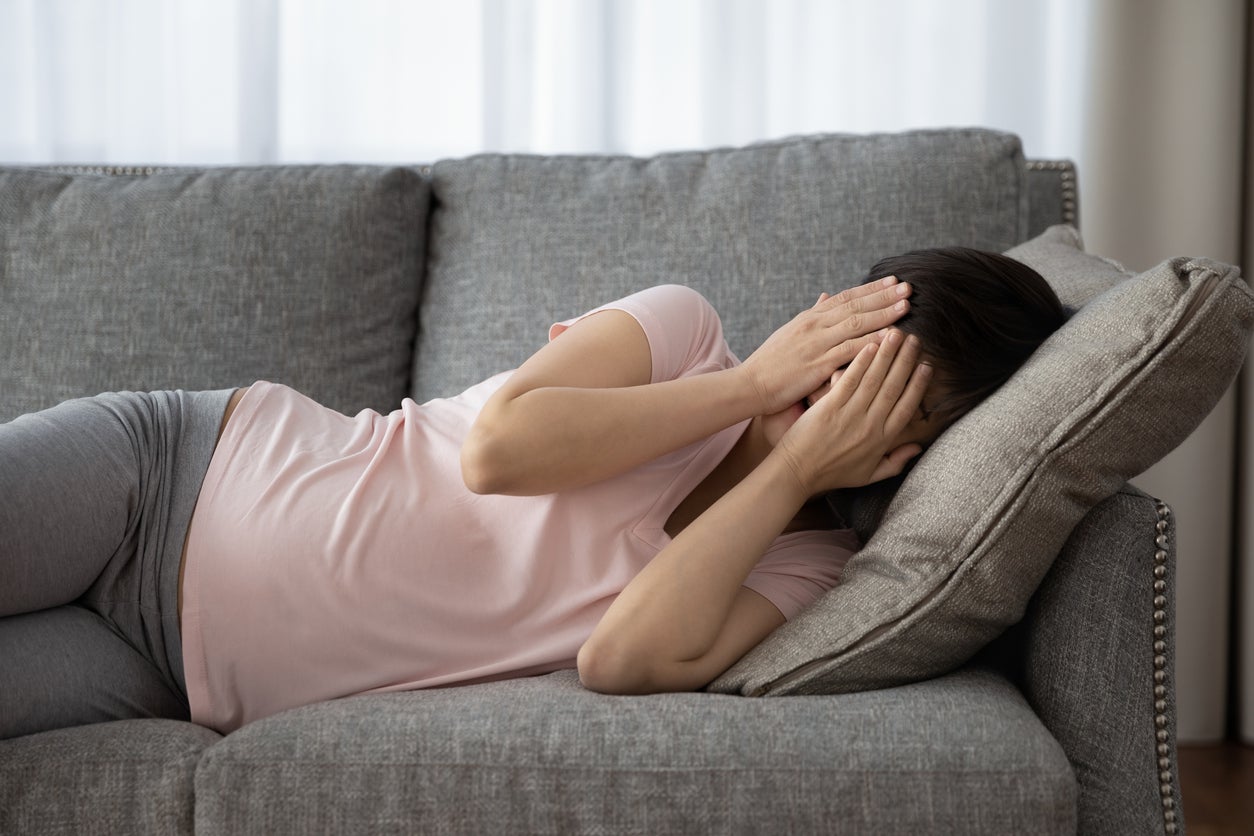Government pledges better support for women who lose babies during pregnancy
Women who lose babies will be able to get a certificate as official recognition of their loss

Women who lose babies during pregnancy will be able to get a certificate as an official recognition of their loss as well as better collection and storage of remains under new government plans.
The government will make sure the certificate is available to anyone who requests one after experiencing any loss pre-24 weeks’ gestation.
The NHS will develop and deliver a sensitive receptacle to collect baby loss remains when a person miscarries. A&Es will also have to ensure that cold storage facilities are available to receive and store remains or pregnancy tissue 24/7 so that women don’t have to resort to storing them in their home refrigerators.
The new recommendations, published on Saturday, are part of the government’s response to the independent Pregnancy Loss Review.
Women’s minister Maria Caulfield said more must be done to support those who lose their babies in early or mid-pregnancy. Every year an estimated 250,000 pregnancies end through miscarriage.
In her review response, Ms Caulfield said that it was not acceptable for women to be asked to collect and store remains in household receptacles.
She noted that women who are going through a miscarriage in hospital should also not have fetal remains stored or transported in receptacles normally associated with waste products, such as bed pans or kidney dishes.
Instead, the government has pledged to create a bespoke receptacle to allow the remains to be collected and stored with dignity and a working group will be convened to design the product.
The NHS website will also be updated to include more content on hormone replacement therapy and to allow people to search for the local availability of in vitro fertilisation treatment (IVF).
Guidance had been updated for how women who experience a pre-24-week baby loss are cared for. They must be allowed to speak face-to-face with a GP following the first loss and should be advised about the impact of the experience on mental health.
Following two losses, blood tests should be carried out and, if necessary, further referrals. And after a third baby loss, they should receive an appointment at a specialist recurrent miscarriage centre.
The government also recommended that NHS employees should model excellent bereavement support by offering up to 10 days of paid leave for a woman who experiences any pre-24-week baby loss. Her partner should also receive five days.
NHS trusts should not group bereavement, sickness and parental leave in the same category, the advice said.
The National Institute for Health and Care Research (NIHR) has also been asked to carry out additional research into why there is an increased risk of pre-24-week baby loss in women from Black, Asian and ethnic minority backgrounds and people from socio-economically deprived areas.
Zoe Clark-Coates, founder of The Mariposa Trust, and Samantha Collinge, lead bereavement midwife at the George Eliot Hospital NHS Trust, led the Pregnancy Loss Review and will work with the government to implement their 73 recommendations.
Ms Clark-Coates said the review’s recommendations “offer a real opportunity to revolutionise baby loss care in England”.
She added: “My passion and long-term commitment is to help all bereaved families, and by the implementation of these recommendations, I believe we will make great strides in addressing the disparities in the care, support, education, and training that currently exist.”
Professor Dame Lesley Regan, women’s health ambassador, said “a huge amount” has been achieved since the strategy was revealed last summer.
She added: “This is just the beginning, and every conversation about women’s health is a step towards closing the gender health gap.
“The enthusiasm of all those involved makes it clear that everyone wants to get this right for women and girls, and I look forward to continuing to drive this forward in the coming years.”



Join our commenting forum
Join thought-provoking conversations, follow other Independent readers and see their replies
Comments